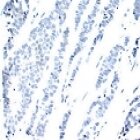Immunology
Open access articles on immunology. Articles from Immunology and Immunogenetics Insights, Immunotherapy Insights.




 Latest news
Latest news
- Author interview with Dr Thomas Ostermann
-
- 24/Mar/2010
- Author interview with Dr Ross Grant
-
- 11/Mar/2010
- Follow our open access journals on Twitter
-
- 11/Mar/2010
- Published in February
-
- 11/Mar/2010
- New article notifications in your in-box
-
- 22/Feb/2010
- Indian Journal of Clinical Medicine introductory editorial available
-
- 11/Feb/2010
- Published in January
-
- 11/Mar/2010
- Seven more journals added to CAS
-
- 26/Jan/2010
- Directory of Open Access Journals interview
-
- 28/Jan/2010
- Author interview with Dr Hiro Koshiyama
-
- 28/Jan/2010
- Author interview with Dr Nicolas Carels
-
- 22/Jan/2010
- Interview with Clinical Medicine Insights: Cardiology editorial board meber Dr Arnon Blum
-
- 12/Jan/2010
- Five more journals accepted by DOAJ
-
- 05/Jan/2010
- Open access articles published in December
-
- 04/Jan/2010
- Open access articles published in November
-
- 09/Dec/2009
- 2010 special issues
-
- 07/Dec/2009
- Proposals invited for Translational Oncogenomics special issue
-
- 07/Dec/2009
- Proposals invited for Signal Transduction Insights special issue
-
- 07/Dec/2009
- Proposals invited for Rehabilitation Process and Outcome special issue
-
- 07/Dec/2009
- Proposals invited for Primary Prevention Insights special issue
-
- 07/Dec/2009
- Proposals invited for Perspectives in Medicinal Chemistry special issue
-
- 07/Dec/2009
- Proposals invited for Palliative Care: Research and Treatment special issue
-
- 07/Dec/2009
- Proposals invited for Immunotherapy Insights special issue
-
- 07/Dec/2009
- Proposals invited for Human Parasitic Diseases special issue
-
- 07/Dec/2009

 Latest articles
Latest articles
- Evaluation of Knowledge, Attitude and Performance of the Mothers of Children Affected by Cutaneous Leishmaniasis
- Network Robustness Due to Multiple Positive Feedback Loops: A Systematic Study of a Th Cell Differentiation Model
- Reconceptualizing Autism: Moving Beyond the Behavioral to Address Cause, Cure and Prevention
- Coffee-Induced Hypokalaemia
- Pharmacotherapy of Major Depressive Disorder: Focus on Desvenlafaxine Succinate
- Hemorrhagic Cystitis in a Patient Receiving Docetaxel for Prostate Cancer
- Co-existence of Ventricular Septal Defect and Bronchial Asthma in Two Nigerian Children
- Estimation of Hazard Functions in the Log-Linear Age-Period-Cohort Model: Application to Lung Cancer Risk Associated with Geographical Area
- Detection of RNA in the Plasma of Patients with Sporadic Creutzfeldt–Jakob Disease, Gerstmann–Straüssler Syndrome and Other Non-Transmissible Spongiform Encephalopathy Brain Disorders
- Pharmacotherapy of Chronic Heart Failure in the Elderly: A Review of the Evidence
- Management of Chronic Myeloid Leukemia with BCR/ABL Inhibitors: Current Status and Future Perspectives
- Pulmonary Tuberculosis: Focus on the Fluoroquinolones
- A Comparative Taxonomy of Parallel Algorithms for RNA Secondary Structure Prediction
- Amino Acids Enhance Adaptive Behaviour of Pseudomonas Aeruginosa in the Cystic Fibrosis Lung Environment
- Intranasal Ciclesonide in Allergic Rhinitis
- EGFR and hTERT Expression as a Diagnostic Approach for Non-small Cell Lung Cancer in High Risk Groups
- Zonisamide as Adjunctive Therapy for Adults with Partial-Onset Epileptic Seizures: An Efficacy and Safety Review
- Detection of Provasopressin in Invasive and Non-invasive (DCIS) Human Breast Cancer Using a Monoclonal Antibody Directed Against the C-terminus (MAG1)
- Emerging Therapies for the Management of Multiple Sclerosis
- Metabolic Abnormalities in Abstinent Methamphetamine Dependent Subjects
Most read articles
- Current Status of Monocyte Differentiation-Inducing (MDI) Factors Derived from Human Fetal Membrane Chorion Cells Undergoing Apoptosis after Influenza Virus Infection
- Relationship Between the Plasma Concentration of C-Reactive Protein and Severity of Peripheral Arterial Disease
- Intraspecific ITS Variability in the Kingdom Fungi as Expressed in the International Sequence Databases and Its Implications for Molecular Species Identification
- Clinical Presentation and Histologic Findings at Ileocolonoscopy in Children with Autistic Spectrum Disorder and Chronic Gastrointestinal Symptoms
- A Simple Derivation of the Distribution of Pairwise Local Protein Sequence Alignment Scores
- DICOM Structured Reporting and Cancer Clinical Trials Results
- Mammoth and Elephant Phylogenetic Relationships: Mammut Americanum, the Missing Outgroup
- Evaluation of Two Outlier-Detection-Based Methods for Detecting Tissue-Selective Genes from Microarray Data
- Exploring the Evolutionary History of the Differentially Expressed Genes between Human Populations: Action of Recent Positive Selection
- Systems Biology-Based Identification of Crosstalk between E2F Transcription Factors and the Fanconi Anemia Pathway
- On the Adaptive Design Rules of Biochemical Networks in Evolution
- Phylogenetic diversity (PD) and biodiversity conservation: some bioinformatics challenges
- Fast Genes and Slow Clades: Comparative Rates of Molecular Evolution in Mammals
- Identification and Quantitation of Asparagine and Citrulline Using High-Performance Liquid Chromatography (HPLC)
- In Silico Promoter Analysis can Predict Genes of Functional Relevance in Cell Proliferation: Validation in a Colon Cancer Model
(previous 30 days)Site updates
Immunology and Immunogenetics Insights
Relationship Between Celiac Disease Markers and Gastrointestinal Disease in Children with Autism (19/Mar/2010)
Aim: This study was designed to determine if there is a relationship between celiac disease (CD) and the presence of gastrointestinal disease (GI) disease in children with autism. Subjects and Methods: One hundred twenty-two children were tested for IgG and IgA anti-transglutaminase autoantibodies (55 autistic children with GI disease, 28 non...
Generalized Autoimmunity of ANCA and ASCA Related to Severity of Disease in Autistic Children with GI Disease (08/Oct/2009)
Aim: To assess serum Anti-Neutrophil cytoplasmic Antibody (ANCA—PR3 and MPO) and Anti-Saccharomyces Cerevisiæ Antibody (ASCA) levels in autistic children with severe gastrointestinal (GI) disease and to test the hypothesis that there is generalized autoimmunity in a subpopulation of autistic children with severe GI disease and that this autoimmunity is associated...
Dose-Specific Biphasic Effects of Simvastatin on the Expression of CXCL10 and CX3CL1 by Human Osteoblasts (17/Aug/2009)
Objective: To better understand the effects of simvastatin (SS) on the expression and secretion of two chemokines, CXCL10 and CX3CL1, by osteoblasts, and to test whether inhibition of isoprenoid intermediates of cholesterol biosynthesis were involved in the effects of SS. Methods: Human osteoblasts were incubated in the presence or absence of...
Aim: To assess both ant-PR3 and anti-MPO IgG anti-neutrophil cytoplasmic antibodies (ANCA), in autistic children with gastrointestinal symptoms and controls, and to test the hypothesis that there is an association between the presence of these antibodies and inflammatory GI disease seen in many autistic children. Subjects and Methods: ELISA’s were used...
Characteristics of Activated Monocyte Phenotype Support R5-Tropic Human Immunodeficiency Virus (10/Mar/2009)
Background: Microbial translocation has been recognized as an important factor in monocyte activation and contributing to AIDS pathogenesis with elevated plasma lipopolysaccharide (LPS) levels, as a marker for microbial translocation, seen in advanced HIV disease. Therefore, the current study was undertaken to assess monocyte activation in vitro by LPS...
Is the Adipose Tissue the Key Road to Inflammation? (17/Feb/2009)
It is now broadly accepted that white adipose tissue disorders, such as obesity, are associated with a chronic low-grade inflammation predisposing to the development of insulin-resistance, type 2 diabetes and cardiovascular complications. In obesity, accumulation of visceral adipose tissue, rather than subcutaneous adipose tissue, is regarded as the most critical...
Introductory Editorial by Dr Darren R Flower, The Jenner Institute, University of Oxford, Nuffield Department of Clinical Medicine, John Radcliffe Hospital, Headley Way, Headington, Oxford, U.K.
Immunotherapy Insights
Epstein-Barr virus (EBV)-associated malignancies offer a unique model to develop T cell-based immune therapies, targeting viral antigens expressed on tumor cells. Throughout the last 15 years, EBV-specific cytotoxic T-lymphocytes (CTL) have been successfully employed for the prophylaxis and treatment of EBV-related lymphoproliferative disorders (LPD) in immunocompromised hosts, particularly after hematopoietic...
Introductory Editorial (Immunotherapy Insights) (29/Jan/2009)
Introductory Editorial by Dr John Barrett, Allogeneic Stem Cell Transplantation, Bethesda, Maryland, U.S.A.






